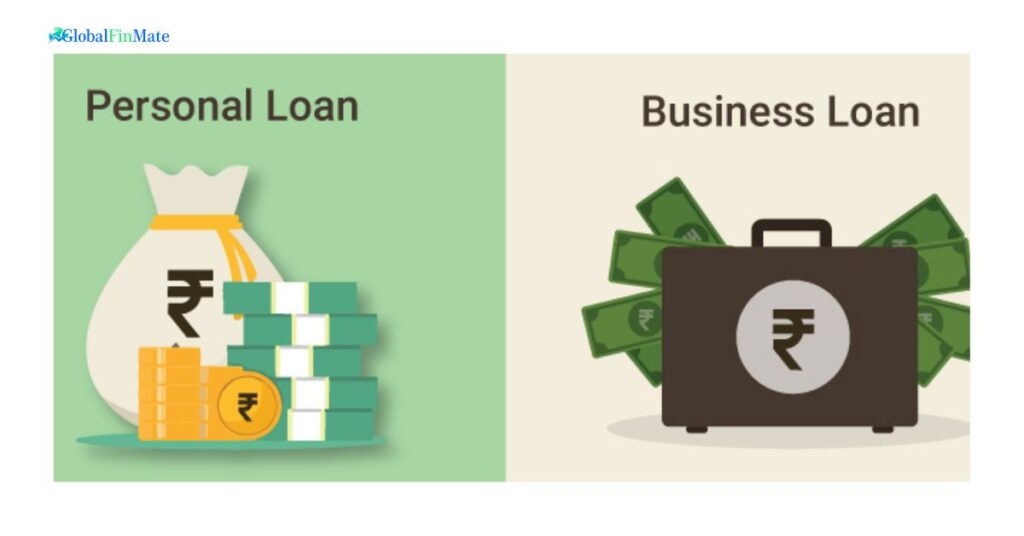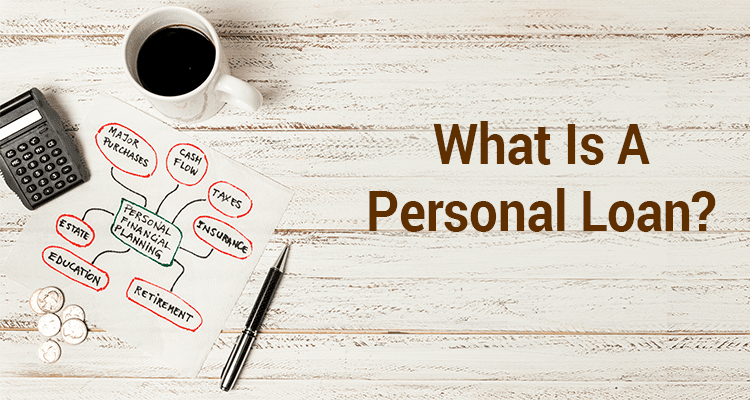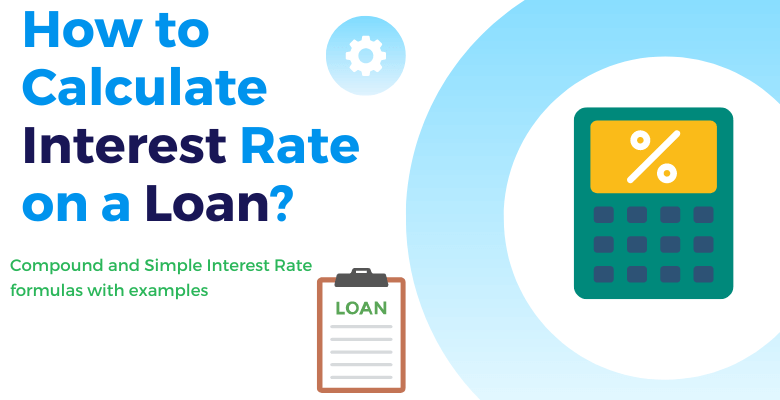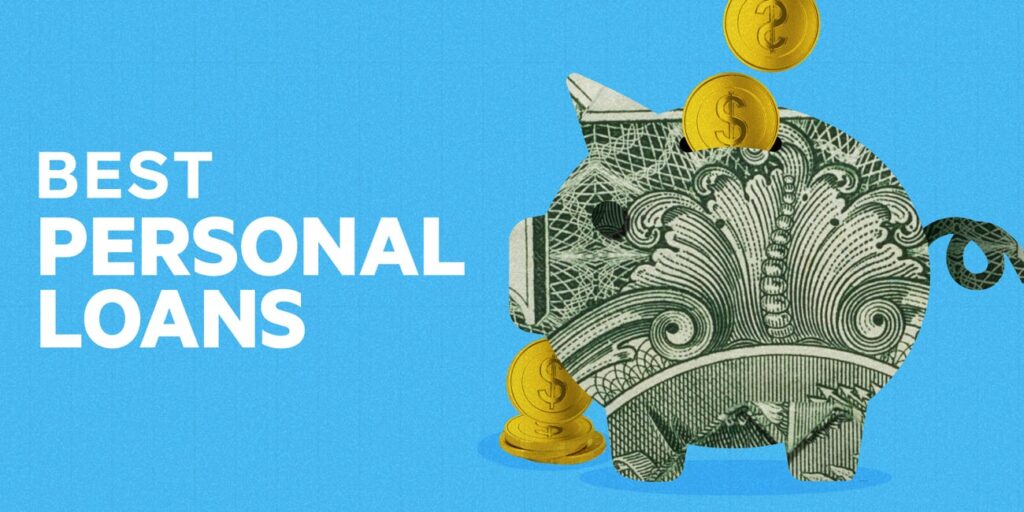Personal Loan vs Business Loan: GlobalFinMate
In today’s fast-paced financial world, loanshave become an essential tool for individuals and businesses to meet their funding needs. Whether it’s for personal reasons like managing wedding expenses, medical emergencies, or home renovations, or for business purposes such as expanding operations, purchasing inventory, or improving cash flow, loans provide the flexibility to achieve financial goals without draining savings.
Among the most popular borrowing options are personal loans and business loans. While both serve the purpose of providing quick access to funds, they differ significantly in terms of eligibility, documentation, usage, repayment structure, and benefits. Understanding these differences is crucial to making the right borrowing decision that aligns with your financial needs and long-term plans.
In this detailed guide, we’ll explore the key aspects of personal loans and business loans, compare their advantages and disadvantages, and help you decide which option is best suited for your situation.
What is a Personal Loan?
A personal loan is an unsecured loan offered by banks, credit unions, or fintech lenders to individuals for personal financial needs. Unlike secured loans, personal loans do not require collateral, making them easily accessible to salaried and self-employed individuals.
Key Features of Personal Loans:
- Unsecured Nature: No collateral is required.
- Flexible Usage: Can be used for multiple purposes such as education, travel, medical bills, or weddings.
- Loan Amount: Usually ranges from ₹50,000 to ₹40 lakhs (in India) or equivalent depending on the lender.
- Repayment Tenure: Typically between 1 to 7 years.
- Interest Rate: Higher compared to secured loans, often ranging from 10% to 25% annually.
- Eligibility: Based on income level, employment type, age, and credit score.
Common Uses of Personal Loans:
- Covering emergency expenses.
- Funding higher education.
- Debt consolidation.
- Wedding expenses.
- Vacation and travel plans.
- Home renovation projects.
What is a Business Loan?
A business loan is a credit facility specifically designed for business-related purposes. Unlike personal loans, business loans can be either secured or unsecured, depending on the loan type and amount. They are typically offered to entrepreneurs, small businesses, startups, and established corporations to help them meet business financial requirements.
Key Features of Business Loans:
- Collateral Requirement: May or may not require collateral depending on the loan type.
- Purpose-Specific: Must be used strictly for business-related expenses.
- Loan Amount: Higher limits compared to personal loans; can range from ₹1 lakh to several crores.
- Repayment Tenure: Flexible, often between 1 to 15 years.
- Interest Rate: Generally lower than personal loans, ranging from 8% to 18%, but varies by lender and risk assessment.
- Eligibility: Depends on business revenue, financial statements, credit score, and years of operation.
Common Uses of Business Loans:
- Expanding business operations.
- Purchasing machinery or equipment.
- Maintaining working capital.
- Marketing and advertising.
- Managing payroll or seasonal demand.
- Starting a new branch or outlet.
Personal Loan vs Business Loan: Key Differences
| Factor | Personal Loan | Business Loan |
|---|---|---|
| Purpose | Personal use such as travel, medical, education | Strictly for business activities |
| Collateral | Not required (unsecured) | May require collateral depending on loan type |
| Loan Amount | Limited, usually up to ₹40 lakhs | Higher, often in crores |
| Eligibility | Based on income, job stability, credit score | Based on business revenue, financial records, creditworthiness |
| Interest Rate | Higher (10–25%) | Lower (8–18%) |
| Repayment Tenure | Shorter, 1–7 years | Longer, 1–15 years |
| Tax Benefits | Limited (in case of debt consolidation) | Tax-deductible interest payments |
| Documentation | Minimal (ID, address, income proof) | Extensive (business plan, financial statements, tax returns) |
Advantages of Personal Loan
- Quick Disbursement – Fast approval and minimal paperwork.
- No Collateral Needed – Great option for individuals without assets.
- Flexible Usage – No restrictions on how the money is used.
- Easier Eligibility – Salaried employees can qualify based on income.
- Smaller Loan Amounts Available – Suitable for short-term needs.
Disadvantages of Personal Loan
- Higher Interest Rates – More expensive compared to secured loans.
- Shorter Tenure – Can increase monthly repayment burden.
- Limited Loan Amount – Not suitable for high-value needs like large-scale business expansion.
- Impact on Personal Credit – Default can harm your personal credit score.
- No Tax Benefits – Limited scope for deductions.
Advantages of Business Loan
- High Loan Amounts – Suitable for expansion and growth.
- Flexible Tenure – Longer repayment schedules reduce financial stress.
- Lower Interest Rates – More affordable than personal loans.
- Tax Benefits – Interest payments are deductible as business expenses.
- Business Growth Support – Tailored products like working capital loans, equipment loans, and overdrafts.
Disadvantages of Business Loan
- Lengthy Approval Process – Requires detailed documentation.
- Collateral Requirement – Some loans demand security, increasing risk.
- Strict Usage Rules – Funds must be used solely for business.
- Eligibility Barriers – Startups or businesses with poor records may struggle.
- Personal Guarantee Risks – Owners may still be held personally liable.
When Should You Choose a Personal Loan?
- You need quick cash for personal emergencies.
- Loan requirement is small to medium.
- You don’t want to pledge assets as security.
- You have a stable income and good credit score.
- Purpose is non-business related.
When Should You Choose a Business Loan?
- You want to expand or scale operations.
- Loan requirement is large.
- You’re looking for lower interest rates.
- You have proper documentation and financial statements.
- You want tax-deductible benefits.
Tips to Choose Between Personal Loan and Business Loan
- Define Your Purpose Clearly – Personal needs vs business growth.
- Compare Loan Amount Requirements – Small needs can be covered by personal loans, while large investments require business loans.
- Check Eligibility – Apply where you have higher chances of approval.
- Evaluate Repayment Capacity – Don’t overburden your finances.
- Consider Tax Benefits – Business loans offer tax deductions.
- Consult a Financial Advisor – Get professional input for large decisions.
Conclusion
Both personal loans and business loans are powerful financial tools, but their effectiveness depends on your requirements. A personal loan works best for individuals seeking quick, collateral-free funds for small to medium expenses. On the other hand, a business loan is more suitable for entrepreneurs and companies aiming for long-term growth and large-scale financing.
The choice ultimately depends on your purpose, loan size, repayment capacity, and financial documentation. By carefully weighing the pros and cons, you can make an informed decision that aligns with your personal or business goals.










